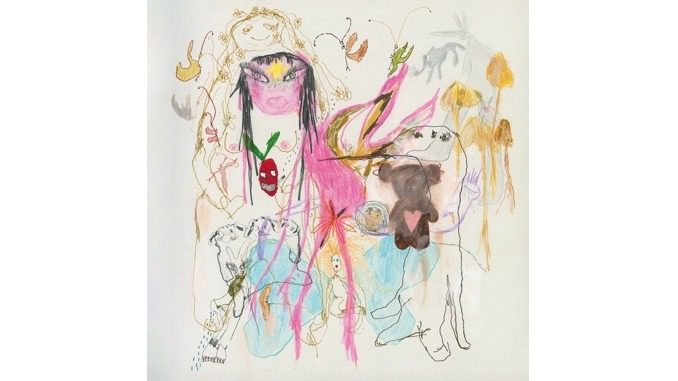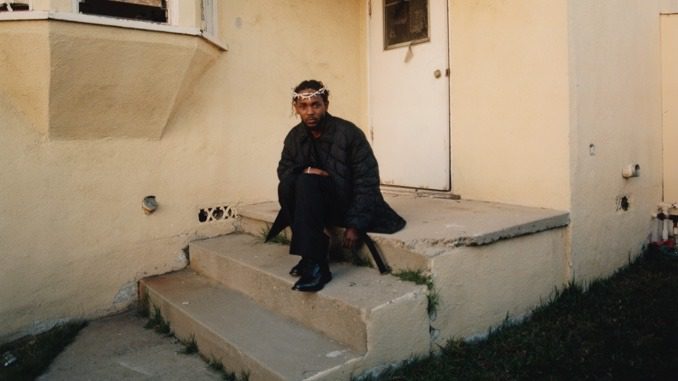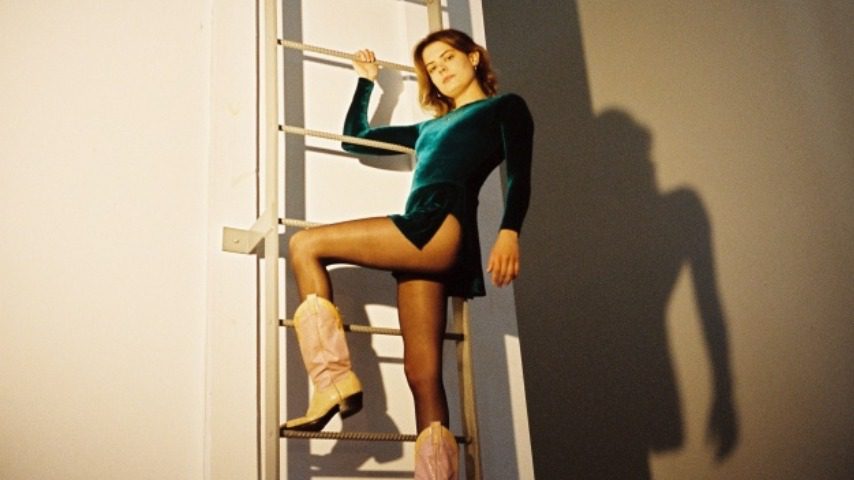In the wake of her debut album, Fake It Flowers, Bea Kristi was given an unfair expectation. The artist who performs as beabadoobee was hailed by some of the music press as a sign that her music, clearly inspired by ‘90s alt-rock, could resonate with a new audience and infiltrate popular culture. Because of her beginnings on TikTok, Kristi was a potential missionary for a subset of culture that felt its influence on young people dwindling. And though her music incorporates the indie rock of her idols—she once wrote a song called “I Wish I Was Stephen Malkmus”—her songs are written from a place of admiration for pop music’s glittery mass appeal. The hypothesis put forth by these hopeful onlookers, that one could Trojan-horse rock music inside a pop song, remains to be proven out. Regardless of what she’s personally drawn to, beabadoobee makes buoyant power-pop that’s able to adapt to her whim. At times it appears as a slow, swaying guitar ballad given force by her airy vocals, like on Flowers cut “How Was Your Day?” More often, it’s expressed through upbeat songs, blown out with such shining, sharp guitar tones that you can feel them reverberate through your body. Whatever means Kristi uses to channel her musical ambitions, it is always going to be more interesting than the narratives her output gets placed in.
Her sophomore record, Beatopia, sees her reining in the wilder reach of her debut, producing something closer to authenticity. Named for a childhood inner world, its songs feel more authentically beabadoobee, less like her trying things out.
Beatopia is an album that’s most captivating when it’s explicitly trying to be. The standouts boast fetching choruses, expertly crafted hooks and masterful production. The first of these, “10:36,” is built around a combination of live drums and more artificial beats to evoke a frenzied tone. In its lyrics, Kristi coolly admits to keeping whomever she’s singing to around solely out of convenience. As the song erupts into a hail of atmospheric guitar work, she sings, “You’re just a warm body to hold / At night when I’m alone.” It’s disarming in its brutal honesty and allows a song that already hits hard to land an extra blow. Another highlight, the lead single “Talk,” is an endlessly catchy power-pop song perfectly aligned with the lead from Flowers, “Care.” Muffled drums and Kristi’s filtered vocals navigate a sea of thrashing guitars. Incorporating specific aspects of shoegaze into pop music, she builds on the sounds we’ve seen recently from artists like Halsey and Magdalena Bay. There are similar surprising bursts of reverb-heavy guitar and vocals in the chorus of side-B standout “Don’t get the deal.” The stop-and-start nature of the song is disorienting, but results in a delicious bit of whiplash as it finally breaks open into a forceful guitar solo, one of the best of Kristi’s career thus far.
When the powerhouse moments of Beatopia take a breather, though, the momentum comes to a screeching halt. The aptly titled “Lovesong” spends much of its four-minute runtime plodding and sparse before blossoming, giving a real-time glimpse of how much more interesting it could be if dialed up higher. Despite being joined by a string section, the pick-scratch-heavy ballad “Ripples” fails to take off, feeling at every moment like a quiet stretch that’s out of place. The record’s closer, “You’re here that’s the thing,” is cloying. Kristi’s lyricism is hardly a point of focus as her songs grab you with their melody alone, but the writing here feels warm, yet empty—”I’ve got you wrapped around my finger / Like a piece of ribbon / You just won’t admit it that you’re smitten.” On a record that signals so much growth for beabadoobee, it is a rare step backward.
It’s hard to find writing about beabadoobee that doesn’t mention her ‘90s influences, and it’s easy to see why. There is undeniably a streak of Liz Phair throughout the albums she’s released since signing with Dirty Hit, and she has spoken loudly about the bands she considers influences on her, including acts like Smashing Pumpkins and Sonic Youth. However, Beatopia sounds like a shift forward in time—no longer indebted to the outsider sleaze of the ‘90s, Kristi’s sound has fully transitioned towards the major-label radio pop-rock of the aughts. Perhaps a better comparison is Michelle Branch, who once made the same kind of anthemic pop-rock hits Kristi does; songs that are begging you to scream every line back. Like Branch before her, Kristi has tapped into the power that comes with folding the aggression of rock music into neat, presentable pop songs. While Beatopia is an imperfect record, it is a level up strong enough to show something great on the horizon.
Eric Bennett is a music critic with bylines at Post-Trash, The Grey Estates and The Alternative. They are also a co-host of Endless Scroll, a weekly podcast covering the intersection of music and internet culture. You can follow them on Twitter at @violet_by_hole.




